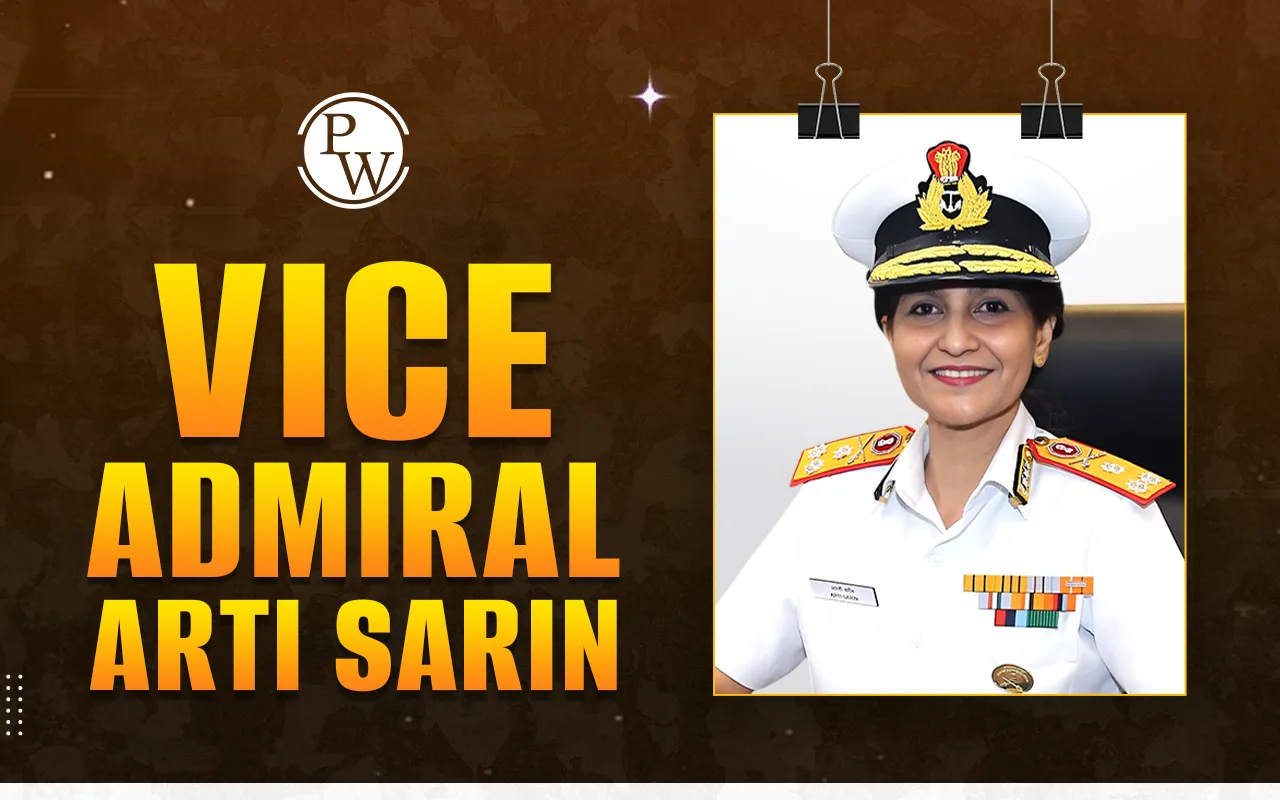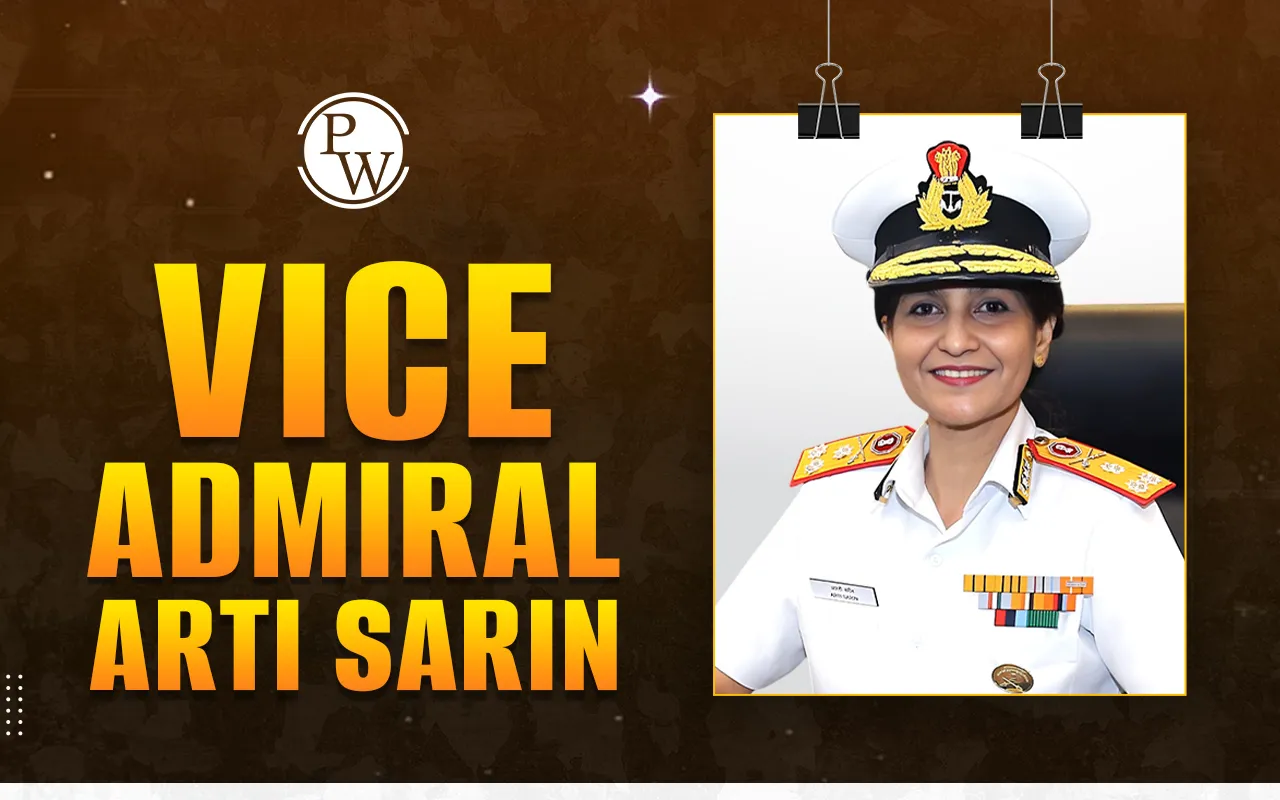

Vice Admiral Arti Sarin is a well-known name in the Indian Armed Forces. Her journey shows dedication, steady growth, and a strong commitment to military medicine. She has served in the Army, Navy, and Air Force during her long career. Today, Vice Admiral Arti Sarin stands as the first woman to lead the Armed Forces Medical Services. Her new role marks an important moment in the history of Indian defence services.
Who Is Vice Admiral Arti Sarin?
Vice Admiral Arti Sarin is a senior officer in the Indian Navy. She has worked in military medicine for many years. She completed her schooling in a disciplined environment. Later, she joined the Armed Forces Medical College. Her training shaped her into a skilled medical officer.
Vice Admiral Arti Sarin specialised in Radiology and Radiation Oncology. She gained knowledge from leading medical institutes in India. She also trained abroad to improve her skills in advanced medical procedures. The hard work of Vice Admiral Arti Sarin helped her grow as a dependable officer in the armed forces.
During her early years, Arti Sarin learned the value of service and discipline from her family. The influence of her home supported her dreams. Over time, Arti Sarin followed her goals with patience and commitment.
Career Journey of Vice Admiral Arti Sarin
Vice Admiral Arti Sarin began her career in the Armed Forces Medical Services in December 1985. Her journey took her through many postings in the Army, Navy, and Air Force. Below, we’ve mentioned the career journey of Vice Admiral Arti Sarin:
| Career Journey of Vice Admiral Arti Sarin | |
| Stage of Career | Details of Work and Responsibilities |
| Early Career in Armed Forces Medical Services (From 1985 onward) | Began her journey in the Armed Forces Medical Services and worked across the Army, Navy, and Air Force. Gained experience in military hospitals, medical centres, and different field areas. |
| Service in Challenging Locations | Took up postings in regions with difficult conditions. Handled medical responsibilities in conflict-affected zones and treated both defence personnel and civilians. Worked with forward medical teams during demanding situations. |
| Academic and Training Roles | Served in military medical colleges and taught postgraduate students. Guided research work and supported medical teams in various studies. Helped upcoming doctors understand clinical methods and patient care. |
| Leadership in Military Hospitals | Took charge of important responsibilities in naval hospitals. Served as the Commanding Officer of INHS Asvini. Her steady approach helped build trust within the armed forces medical community. |
| Administrative Roles in Naval Commands | Served as Command Medical Officer in multiple naval commands. Oversaw medical planning, guided healthcare teams, and coordinated medical services across wide naval regions. |
Vice Admiral Arti Sarin as DGAFMS (Director General AFMS)
Vice Admiral Arti Sarin took charge as the Director General of the Armed Forces Medical Services on 1 October 2024. This is the senior-most medical post in the armed forces. Her appointment marked the first time a woman officer held this position.
As DGAFMS, Vice Admiral Arti Sarin guides medical operations for the Army, Navy, and Air Force. This includes planning, coordination, and supervision. Her work helps improve healthcare systems across all defence units.
Her new role reflects the growing responsibilities of women officers in India’s defence forces. It also shows the trust placed in Vice Admiral Arti Sarin after years of steady and dedicated service. Her leadership in this role supports the medical needs of thousands of defence personnel across the nation.
Key Achievements and Recognitions
Vice Admiral Arti Sarin has earned several honours for her service. These awards reflect her years of dedication, discipline, and contribution to military medicine. She received important national honours for her steady work. Her research work, teaching roles, and leadership during public health challenges also stand out.
She worked during the COVID-19 period and helped set up medical centres and support facilities. Vice Admiral Arti Sarin also guided teams during operations in difficult regions. She has contributed to medical education, policy work, and training programs across the armed forces.
Command Hospital Pune Role
Vice Admiral Arti Sarin worked at medical establishments linked with Command Hospital Pune. These postings helped her gain clinical experience in radiology and oncology. Her time in these centres supported her medical training and prepared her for future responsibilities.
Delhi Cantonment General Hospital Association
Vice Admiral Arti Sarin has a personal connection with Delhi Cantonment. She was born in a defence hospital in this area. Her early life in a military environment helped her understand the values of discipline and service from a young age. This background shaped her interest in joining the Armed Forces Medical College.
Service Motto & Values, “Seva Parmo Dharma”
The motto “Seva Parmo Dharma” reflects the spirit of service in the armed forces. Vice Admiral Arti Sarin has followed this value throughout her career. The motto represents dedication toward duty and care for others. Her work in medical services aligns with this simple but powerful principle.
Connection with the Indian Navy Motto
The Indian Navy motto focuses on honour, service, and duty. These values match the work done by Vice Admiral Arti Sarin. Her service in the Navy shows commitment to these principles. Her leadership roles and decisions reflect the steady guidance expected in naval service.
Other Notable Leadership Roles
Vice Admiral Arti Sarin held many important leadership roles before becoming DGAFMS. She served as Director General Medical Services (Air) and Director General Medical Services (Navy). She also guided the Armed Forces Medical College as its head. These positions show her long journey through the medical branches of the armed forces.
Role at Command Hospital Bengaluru / Pune Network
Vice Admiral Arti Sarin has worked with hospitals connected to the network of Command Hospital Bengaluru and Pune. These postings supported her training and administrative growth. They also gave her experience in managing healthcare services for defence personnel.
Contribution to Armed Forces Medical Education
Vice Admiral Arti Sarin has taught many postgraduate students in medical colleges. She guided research work and helped young officers learn clinical and academic skills. Her contribution to military medical education has supported the training of future medical leaders in the armed forces.
